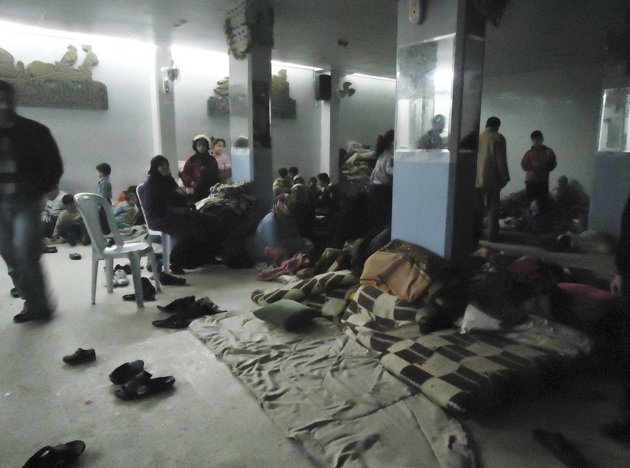
The European Union proposed Thursday that member states resume returning asylum-seekers to Greece from March next year, after transfers were suspended for five years because of poor conditions there.
The European Commission, the EU executive branch, said Athens had now partly improved conditions in line with 2011 court rulings that had suspended the transfers and encouraged the flow of refugees and migrants to wealthier EU countries.
"We are recommending the gradual resumption of Dublin transfers of asylum-seekers starting next year," EU Migration Commissioner Dimitris Avramopoulos told a press conference, with aides saying the date is March 15.
"Greece has made significant progress under very pressing, very difficult conditions to put in place a fully functioning asylum system over the last months, and I want to praise Greece," said Avramopoulos, who is Greek.
People who have already moved on from Greece cannot be returned, and the returns system will only apply to people who move to other countries after March 15, he said.
Unaccompanied minors and vulnerable people will be excluded from the transfers, while Greece must also provide guarantees for each individual person returned that they will receive proper treatment.
Avramopoulos said that "in practice, only a very small number of people" are likely to be transferred back to Greece in the near future.
Under the EU's Dublin asylum rules, countries where migrants first land must process their asylum requests, and must also take back any asylum-seekers who travel to other countries in the bloc.
Greece and Italy have been the first point of entry for the lion's share of the more than one million migrants who have entered the bloc fleeing war and poverty in the Middle East and Africa.
A ruling by the EU's top court in 2011 at the height of Greece's debt crisis said conditions for asylum-seekers in Greece were degrading, meaning that other countries could not send them back.
Impetus for reform of the EU asylum rules grew in October last year when German Chancellor Angela Merkel said "let's be frank. The Dublin process, in its current form, is obsolete".
Migrant numbers had surged after Germany declared it would admit Syrians, even if they technically should have applied for refugee status in the first EU country they set foot in on their way to Germany.
The EU proposed Thursday that member states resume returning asylum seekers to Greece from March next year, after transfers were suspended for five years because of poor conditions there.
The European Commission, the EU executive, said Athens had now partly improved conditions in line with 2011 court rulings that had suspended the transfers and encouraged the flow of refugees and migrants to wealthier EU countries.
"We are recommending the gradual resumption of Dublin transfers of asylum seekers starting next year," EU Migration Commissioner Dimitris Avramopoulos told a press conference, with aides saying the date is March 15.
"Greece has made significant progress under very pressing, very difficult conditions to put in place a fully functioning asylum system over the last months, and I want to praise Greece," said Avramopoulos, who is Greek.
People who have already moved on from Greece cannot be returned, and the returns system will only apply to people who move to other countries after March 15, he said.
Unaccompanied minors and vulnerable people will be excluded from the transfers, while Greece must also provide guarantees for each individual person returned that they will receive proper treatment.
Avramopoulos said that "in practice only a very small number of people" are likely to be transferred back to Greece in the near future.
Under the EU's Dublin asylum rules, countries where migrants first land must process their asylum requests, and must also take back any asylum seekers who travel to other countries in the bloc.
Greece and Italy have been the first point of entry for the lion's share of the more than one million migrants who have entered the bloc fleeing war and poverty in the Middle East and Africa.
A ruling by the EU's top court in 2011 at the height of Greece's debt crisis said conditions for asylum seekers in Greece were degrading, meaning that other countries could not send them back.
Impetus for reform of the EU asylum rules grew in October last year when German Chancellor Angela Merkel said "let's be frank. The Dublin process, in its current form, is obsolete".
Migrant numbers had surged after Germany declared it would admit Syrians, even if they technically should have applied for refugee status in the first EU country they set foot in on their way to Germany.




